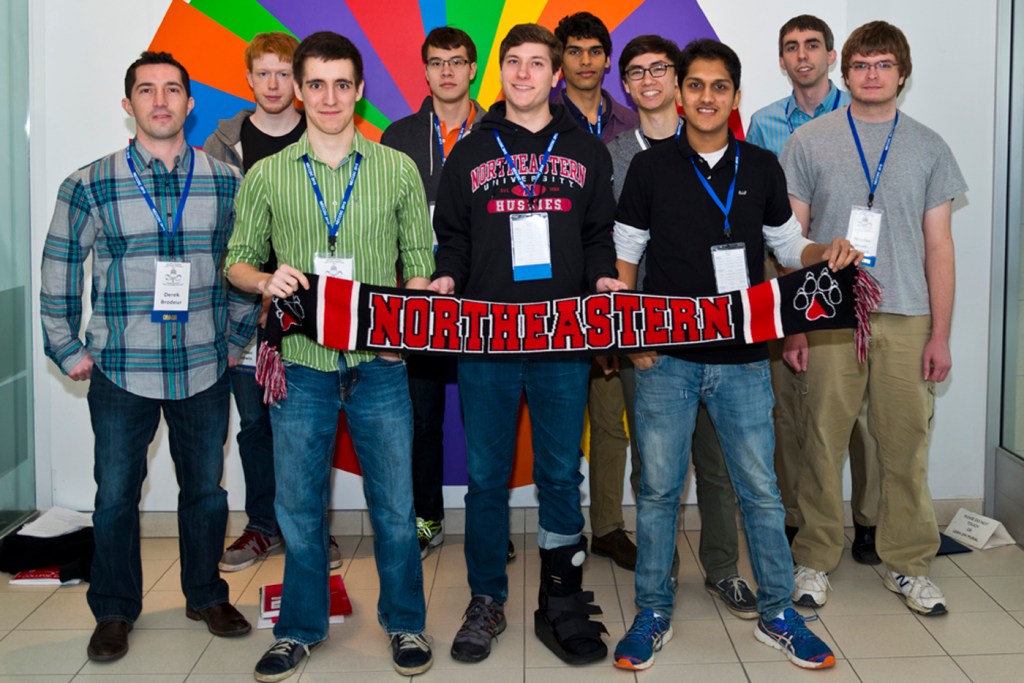Competition pits students against simulated cyberattacks

A medium-sized health insurance company fires its IT staff, citing gross incompetence, and then hires a new team to defend its network against a band of highly skilled hackers looking for private data.
This simulated scenario played out at the 12th annual Northeast Collegiate Cyber Defense Competition, held last month in Syracuse, New York.
Students from 10 schools—including Northeastern University, Champlain College, and the Rochester Institute of Technology—assumed responsibility of the health care company’s IT operations. For three days, they were challenged to mitigate attacks against the organization’s data; respond to business requests; and maintain the company’s operational needs, from e-mail to e-commerce.
Northeastern’s participation in the competition dovetailed with the university’s focus on solving global challenges in security, one of the university’s three main research themes. (Cyberattacks represent one of the 21st-century’s grand challenges, costing the global economy more than one hundred billion dollars per year).
“Competing in this event is one of the coolest things I’ve ever done at Northeastern,” said Alex Interrante-Grant, E’18, the captain of Northeastern’s cyber defense team. “It’s a great opportunity for anyone who’s interested in cybersecurity work.”
The experiential learning opportunity proved invaluable for Northeastern’s team, which placed second in the competition. One of the biggest challenges required the Northeastern students to draw on the hacking skills honed in weekly team drills to thwart attacks from real-word cyberdefense experts.
Team founder and coach Kevin Amorin noted that his squad of IT whizzes is often asked to assume the prototypical hacker’s mindset, attacking virtual environments in simulated scenarios and then safeguarding the systems against future strikes. “We spend time thinking and acting like hackers in order to better understand how to defend,” said Amorin, a part-time lecturer in the College of Computer and Information Science who teaches a course on network security practices. “In this competition, we have industry-level hackers going after the team for close to 20 hours, so we need to be able to identify what they’re doing if we want to stop it.”
His teaching methods have served his team well. Since founding the group in 2008, his cybersquad has twice won the Northeast regionals and beat out more than 80 universities for the national title in 2010.
Interrante-Grant, a second-year computer engineering major, noted that his experience in the group has inspired him to apply for the CyberCorps: Scholarship for Service program at Northeastern, which aims to educate students in information assurance and cybersecurity.
“I’m definitely interested in a career in cybersecurity research,” said Interrante-Grant, who is currently applying his cyber defense skills to his co-op work at the Raytheon Company. “Cybersecurity is one of the most interesting areas in technology because new traps come up every single day.”




